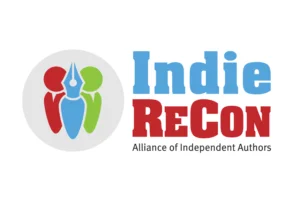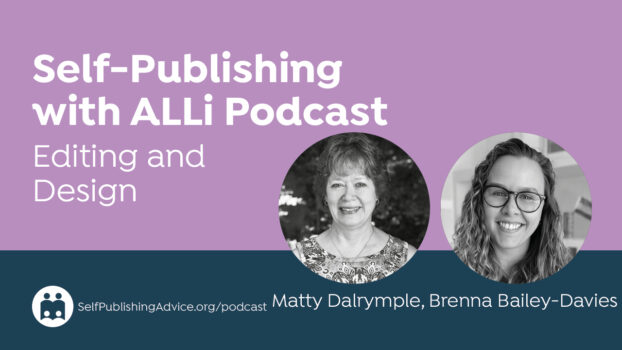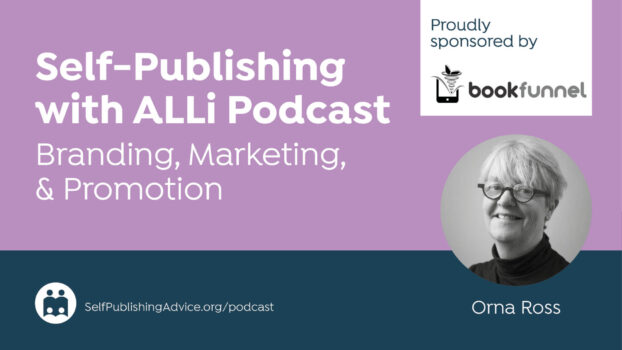Writers are social animals, says Irish author Laurence O'Bryan, founder of BooksGoSocial, who advocates attending writers' conferences to keep the potential isolation of being an indie author at bay.
I have attended three writers’ conferences recently: the Alliance of Independent Authors’ online conference (IndieReCon 2015), the BooksGoSocial Writers’ conference in Dublin, and the Key West Mystery Writers’ Festival in the US.
Each of these is a relatively new event. In a long article in the New York Times recently, Steven Johnson wrote about the predicted apocalypse for creatives in the music, film and book worlds, which has failed to happen. He also describes how, despite changes in the industry, the earnings of creative people has grown at a pace equal to or above inflation.
 While the music industry has seen the greatest shift in the earnings of the businesses that once dominated the industry, the publishing industry has been slower to evolve. But it is evolving. The three writers’ events mentioned above are indicators of that process. Indie authors or groups of authors are independently establishing and promoting each of these events. The first attracted many thousands online, the second and third attracted hundreds to the venues in Dublin and Key West, with growth expected in future years in each case.
While the music industry has seen the greatest shift in the earnings of the businesses that once dominated the industry, the publishing industry has been slower to evolve. But it is evolving. The three writers’ events mentioned above are indicators of that process. Indie authors or groups of authors are independently establishing and promoting each of these events. The first attracted many thousands online, the second and third attracted hundreds to the venues in Dublin and Key West, with growth expected in future years in each case.
For more evidence of this emerging and vibrant element of the publishing industry see posts about events in Ireland, in the U.S. and the UK where over 120 such events are listed as taking place between September and the end of November 2015.
Why Writers Are on the Up
If we can assume that ten writers, at least, get an opportunity to speak at each of these events, then we can safely say that thousands of writers are getting a chance to meet readers, which they probably didn’t have in the past. This growth spurt is likely to continue for the following reasons:
- These events are genuinely enjoyable, writers get to mix and exchange ideas.
- There is a demand from the public for opportunities to learn about writing and for memorable “experiences,” the holy grail of the modern tourist industry.
- Writers understand that, as the publishing industry pulls back, HarperCollins’ closing of the Authonomy service is just one example of this, they can step in.
The Best of Times
My personal experiences with this type of event is that they were some of the best times of my life. I met an editor at one event about crime writing. A few months later she offered me a publishing deal.
Networking has long been seen in the wider business world as an opportunity. Indie/hybrid authors are small businesses these days, and the notion that writers should live in ivory towers is declining. The biggest literary stars are aware of this trend too, but tours by the leading authors of the day have been a part of the literary world for centuries. Dickens is just one example that springs to mind.
My overall memory of the three festivals I recently attended was a feeling of excitement. Yes, I spoke at two of these events, but beyond that, the chance to listen, to learn, to meet others on the same journey and to hear their experiences is something I would pay a lot for.
A Growth Industry
My prediction is that such events will grow and that within another five years we will have a circuit of events to rival the music industry. I don’t expect the largest to ever achieve the full houses that rock stars have been getting for decades, but I do expect them to rival regional music festivals.
Each of the three events I went to provides a glimpse into how literary events will evolve. The IndieReCon event was the largest, and mainly online. It offered online access to a large audience. The other two events provided limited online access through recordings – our BooksGoSocial event – and the appeal of great holiday destination and big name authors, the Key West event.
My Predictions
I also expect that some small events will eventually get rolled together or die, that online access will improve and that destination events will become ever more popular.
Authors often don’t get paid for attending these events, but in many cases their flights and hotels are paid for, which does provide some compensation. I expect payments to authors to increase as events grow. I also expect, as other authors notice that the digital apocalypse was another digital myth, that the line of possible speakers, waiting for their five minutes of fame, will grow.
Why Writers Need Conferences
Writers are social animals. We are humans too. Aspiring to an isolated life is the route to madness, a sidetrack one too many writers have already taken. I’d prefer to be writing well into my later years than going in that direction. I hope you will attend some writers’ events in the near future and support whatever is going on in your city for writers. You never know when you might need such an event to help your own career.
OVER TO YOU Do you agree with Laurence, and if not, why not? Feel free to share your conference recommendations and experiences via the comments box.
Why indie #authors need conferences, by the founder of @YourNewBooks - do you agree? Share on X







I love conferences but must say I prefer the ones which are in my own genre. I belong to the RNA (Romantic Novelists’ Association) and they always put on a great conference. It’s fab meeting old friends and making new, with the valuable 1-1’s which can lead to a book deal.
I enjoyed the blogpost, Laurence.
They’re fine if you’re a presenter; pretty much a waste of time if you’re an attendee. Back in my days as a journalist & magazine editor, my friends and I were often invited to present at various writers’ conferences. There are only so many ways you can present the same (widely available!) advice, over and over — and it pretty much echoes what you can get from a Writer’s Digest book at the library, for free. For what one of these things costs, you can hire a book marketer to help sell your stuff, or take a course at a local college on how to write, if that’s what you’re looking to find out at these events.
As for “writers need to network,” preaching to the choir is not networking efficiently. If you’re going to “network” (ugh! what a verb!), then you should network with people who are likely to buy your books, not with those who are your direct competitors. If you’re a fiction writer, spend the time that would be spent at a conference on the social networks, reaching out to readers of your genre. If you’re a nonfiction writer, use it to get on radio and podcast shows or writing short columns for regional publications that target your audience. If time is money, there are better ways than conference-going to get better bang for your buck.
Don’t sit around talking about writing…sit around and WRITE.
I disagree. Most writers are not social creatures and would prefer to read or write instead of actually communicating with a human. We do enjoy talking about books & writing, but usually prefer online to face time. We want to learn as much as possible from those who have managed to sell books and love opportunities to meet those who do the selling, but those don’t happen very often even at conferences. Most conferences are very expensive, and even those under $200 are too costly for the majority of new or indie writers. You can get many of the same experiences with the same chance of meeting successful authors & editors through online sites, groups, & forums.
These places are available 24/7 for free and offer a lot. You can share knowledge & tips, get critiques & edits, and chat about life as a writer. I have found these places far more valuable than the whirlwind experience of a conference. I have found inspiration when I needed it, knew they were in my corner when I struggled, had cheers when I succeeded, and had support when I failed. I learned great writing tips, learned to cope with rejections and unsupportive people, and above all I learned whatever I’m going through is normal and others have been there too. Writers don’t need conferences, they need other writers.
Writers need conferences to network. Marketing evolves every day, nobody can know it all. Therefore networking at writers’ conferences is the most efficient way to help each other.
[…] Laurence O’Bryan Writers are social animals, says Irish author Laurence O’Bryan, founder of BooksGoSocial, who […]
Thanks all for your comments.
I respect that some writers enjoy being isolated, but I still believe that encouraging more personal interaction is a good thing in the Age of the Internet.
Writers are human too. Occasional social interaction is good for our mental health. And we get a chance to learn new things from our peers. Writers who have reached the stage of being published, might also consider the benefits of giving back.
The age of the reclusive writer is drawing to a close
There are conferences, and then there are conferences. A lot depends on the stage the writer has reached. For those just starting out, conferences and workshops can be very helpful, but the value declines as people become more sophisticated, both in terms of writing and knowledge of the business.
It’s an interesting reply/perspective from Christopher Holt, whether one agrees or not with the comment. I’ve often wondered about conferences where the genre is mixed (I write fantasy/romance) and how exactly that works, especially for fiction vs. non-fiction writers. Aside from discussion on what may intrigue a reader, writing tips and interesting websites, I’m guessing the main attraction is the networking that can take place. And to Alan’s point, I too could only handle 2-3 days of such socializing. But before I spent the money on the ‘good’ conferences, I’d really want to know I’m getting more out of it than a socializing event. The main attraction for me to crawl out of my burrow and away from the focus on writing and what my readers want, would have to be to connect with people of a like-minded interest in our genre and the interest in learning something new. That’s not to say I wouldn’t enjoy meeting and sharing some of the paths to being published with other writers of any genre. 😉 There is always something to be gained from sharing another person’s perspective. Good blog post, Laurence.
Conferences are like mixing too many colours. The result is amorphous mud. Writers must by their very calling remain isolates.
I fully agree with you, Christopher, though for the chatty, extroverted types, this does seem like good advice. When I read “Writers are social animals” I balked, but it’s good to see that I’m not alone.
Fully agree. Like many writers I am alternately gregarious and reclusive. The good writers’ conferences (like Winchester and York in the UK) provide a 2-3 day fix of socialising, networking and inspiration, which happens to be as much as I want (or can cope with) before I need to return to my burrow and get writing again.
Yes, I agree that writers need to socialise and network with each other and to interact with their readers. Like you, Laurence a life of isolation does not appeal to me.
I live in a relatively remote place so the chance to get together with colleagues is especially valued. I too attended Indie ReCon online – perfect set-up for those who can’t travel.
And this year I’ve also been to an editing master class offered locally here on Skye by crime writer Allan Guthrie and funded by Emergents and ExpoNorth. This was well attended by writers from a wide area across the Scottish Highlands.
In March I was at the Scottish Association of Writers annual conference in Glasgow. What a great experience that was. It was so good to meet other writers – indie published or otherwise, attend workshops and talk to other writing professionals.
To date, most of my reader interaction has been online but I’m open to any face-to-face opportunities that may present themselves in future.
It certainly seems that indie authors want conferences. Whenever a new event is advertised, the demand is huge. Cheam (Surrey, England) is holding its first self-publishing fair this month anticipating a handful of people wanting to take part. The organisers have been inundated with requests to attend. They now have a long waiting list.